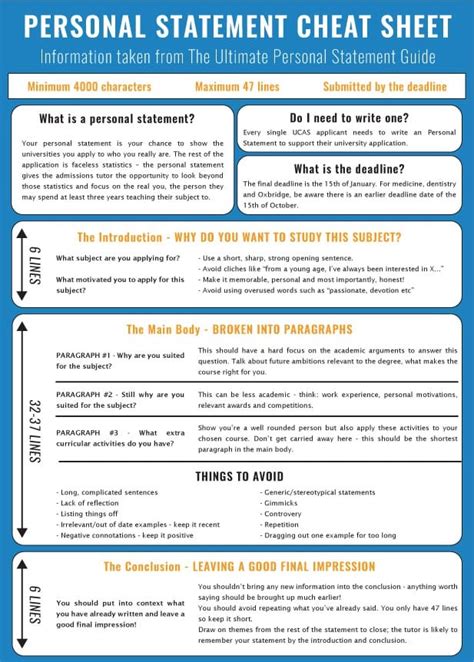Your college application personal statement is your opportunity to showcase your unique qualities, perspectives, and aspirations. This vital piece of the application process can significantly impact admission decisions, making it essential to craft a compelling and memorable statement that effectively highlights your strengths.

Importance of a Compelling Personal Statement
According to the National Association for College Admission Counseling (NACAC), 85% of college admissions offices consider the personal statement a “very important” or “important” factor in their decision-making process. A well-written personal statement can:
- Differentiate you from other applicants: With thousands of applications vying for a limited number of spots, your personal statement sets you apart and creates a lasting impression.
- Demonstrate your writing skills and critical thinking abilities: The personal statement is a test of your ability to communicate your thoughts and ideas clearly and persuasively.
- Convey your passions and aspirations: Use the personal statement to share what drives you, motivates you, and what you hope to achieve in college and beyond.
- Provide context for your academic record: Explain any challenges or obstacles you may have faced, highlighting your resilience and determination.
Crafting a Standout Personal Statement
To create a standout personal statement, follow these steps:
1. Brainstorm:
- Reflect on your experiences: Consider key moments, achievements, and influences that have shaped you as a person.
- Identify your passions: Determine what truly drives you and inspires you.
- Research college requirements: Familiarize yourself with the specific requirements and prompts for each college you apply to.
2. Find Your Story:
- Choose a narrative focus: Select a specific experience or incident that best represents your qualities and aspirations.
- Develop a theme: Identify the central message or idea you want to convey through your statement.
- Organize your thoughts: Structure your statement logically with an introduction, body paragraphs, and conclusion.
3. Write and Revise:
- Draft your statement: Use clear and concise language, avoiding clichés and unnecessary details.
- Seek feedback: Ask trusted mentors, teachers, or family members to review your statement and provide constructive criticism.
- Revise and refine: Take time to refine your language, eliminate errors, and ensure your statement is persuasive and engaging.
Common Personal Statement Topics
While there is no definitive list of topics, some common areas that students explore in their personal statements include:
- Overcoming challenges: Share how you faced and overcame adversity or significant obstacles.
- Personal growth: Describe a transformative experience that led to personal and intellectual growth.
- Community involvement: Highlight your commitment to service, volunteerism, or social impact.
- Academic passions: Discuss the subjects or areas of study that you are particularly passionate about.
- Career aspirations: Express your career goals and how college will prepare you for them.
Tips for a Memorable Statement
- Be authentic: Write in your own voice and share genuine experiences that reflect who you are.
- Show, don’t tell: Use specific examples and anecdotes to illustrate your qualities and experiences.
- Proofread carefully: Ensure your statement is error-free and grammatically correct.
- Tailor to each college: Research the specific colleges you apply to and customize your personal statement accordingly.
- Seek inspiration: Read sample personal statements and articles to gain insights and inspiration for your writing.
FAQs
1. How long should my personal statement be?
Generally, personal statements range from 250-650 words. Check specific college requirements for any word count limitations.
2. What is the best time to start writing my personal statement?
It is recommended to start brainstorming and drafting your personal statement during the summer before your senior year of high school.
3. Should I use humor in my personal statement?
Humor can be effective when used sparingly and appropriately. Ensure your humor aligns with the tone of the statement and does not overshadow your message.
4. Can I submit different personal statements for different colleges?
Yes, customizing your personal statement for each college can demonstrate your interest and research. However, ensure there is consistency in the overall narrative and message you convey.
5. What are common mistakes to avoid in my personal statement?
Avoid clichés, overly formal language, grammatical errors, and focusing solely on academic achievements.
6. How can I stand out with my personal statement?
Share unique and personal experiences, demonstrate your passion for learning, and connect your experiences to your future aspirations.
